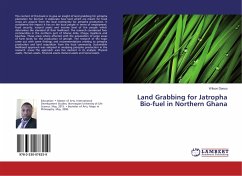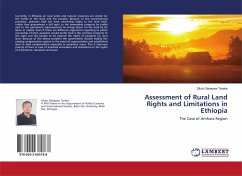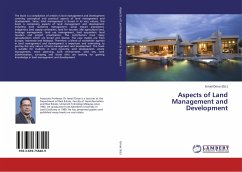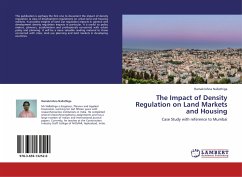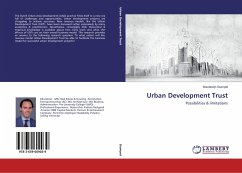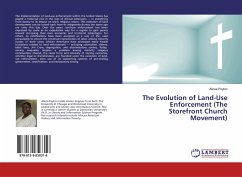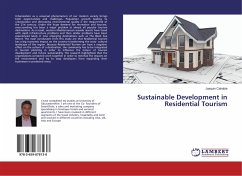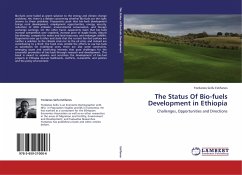
The Status Of Bio-fuels Development in Ethiopia
Challenges, Opportunities and Directions
Versandkostenfrei!
Versandfertig in 6-10 Tagen
32,99 €
inkl. MwSt.

PAYBACK Punkte
16 °P sammeln!
Bio-fuels were hailed as green solution to the energy and climate change problems. Yet, there is a debate concerning whether Bio-fuels are the right answer to these problems. Proponents posit that bio-fuels development brings rural development, employment opportunities, energy security, reduction of GHG emission, environmental conservation, and foreign exchange earnings. On the other hand, opponents claim that bio-fuels increase competition over cropland, increase price of staple foods, disturb bio-diversity, compete for water and land resources, and endanger wildlife. Opponents even go furthe...
Bio-fuels were hailed as green solution to the energy and climate change problems. Yet, there is a debate concerning whether Bio-fuels are the right answer to these problems. Proponents posit that bio-fuels development brings rural development, employment opportunities, energy security, reduction of GHG emission, environmental conservation, and foreign exchange earnings. On the other hand, opponents claim that bio-fuels increase competition over cropland, increase price of staple foods, disturb bio-diversity, compete for water and land resources, and endanger wildlife. Opponents even go further and state that the current bio-fuel policies are neither a solution to the climate crisis nor to the oil crisis, and instead are contributing to a third: the food crisis. Amidst the efforts to use bio-fuels as substitutes for traditional ones, there are also some constraints, emerging issues and conflicting interests that pose challenges for the successful promotion of bio-fuels through research and development. This book is meant to examine and scrutinize the development of bio-fuel projects in Ethiopia vis-à-vis livelihoods, conflicts, co-benefits, and policies and the policy environment



